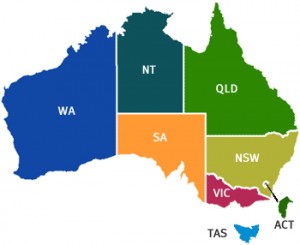 If you read international real estate news, you’ll find plenty of articles on Chinese investors spending billions of dollars on overseas properties. This appears to be in line with the global fortification campaign that the Asian powerhouse has been resolutely carrying out. As the Chinese invest in Australian, European, and American real estate, the astute financial mind is bound to see the wisdom in turning the tables.
If you read international real estate news, you’ll find plenty of articles on Chinese investors spending billions of dollars on overseas properties. This appears to be in line with the global fortification campaign that the Asian powerhouse has been resolutely carrying out. As the Chinese invest in Australian, European, and American real estate, the astute financial mind is bound to see the wisdom in turning the tables.
For a long time, foreigners investing in commercial properties in China had to face impossible challenges brought about by an industry rigidly controlled by the government. The situation today is vastly different. There is actually an over-supply of offices as well as commercial and industrial premises that are open for investment. The Beijing Olympics and the upcoming Shanghai World Expo can be thanked in part for this. Because of the country’s presently more open international relations, commercial property investment in China has become a more feasible and desirable undertaking.
Purchasing property in China definitely has many obvious advantages. Considering the nation’s commitment to trade and commerce, property value is only expected to appreciate. That’s not to say, however, that the challenges have been completely dispelled. The investment process for foreigners is still quite complicated. There are still restrictions imposed by the government, but familiarity with these will allow foreign investors to conduct property purchase and transfers in the correct and approved manner.
It’s important to consult with a China real estate expert such as Lauchlan Leishman to understand what is allowed by the government and what isn’t. For instance, many who are under the misconception that property investment is not allowed to foreigners may feel compelled to course the purchase through a friend or a business partner. This has the unfortunate potential for dispute, a scenario that is best avoided.
The following information doesn’t exempt you from the need to be guided by a real estate professional, but it will give you an idea what you’re up against:
- All land is owned by the Chinese government. When developers buy land, they’re actually only given the right to usage for a certain number of years.
- Foreign investors must have a company branch or representative office in China in order to purchase commercial property, which should be in the same city as the branch or RO.
- Foreign companies are only allowed to invest in commercial properties.
Property investment in China may be a complicated affair, but it could definitely turn out to be profitable. Simply make sure that you consult with a qualified property professional for guidance and assistance.
